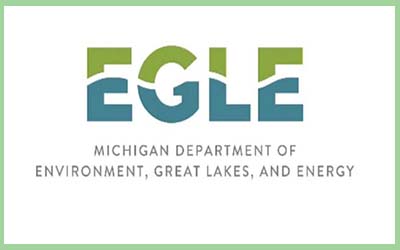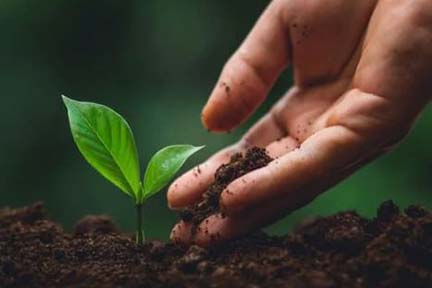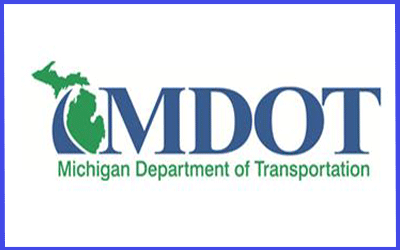
$8.1 million for hosting renewable energy projects
|
|
|
|

|
|
|
|

  |
|||
Press Release FOR IMMEDIATE RELEASE: April 11, 2025 CONTACT: Erin Stover, 517-285-6270, stovere@michigan.gov MDHHS and Children Trust Michigan raise awareness of resources and support available to families to help keep kids safe as part of Child Abuse Prevention Month Child Abuse Prevention Awareness Day rally to be held at the Capitol on April 15 LANSING, Mich. – The Michigan Department of Health and Human Services (MDHHS), along with Children Trust Michigan, recognizes the important role child abuse prevention plays in keeping kids safe and helping parents, families and caretakers access the tools they need to raise children in supportive home environments. “Children deserve to grow up in safe, loving and nurturing homes. Every day, our caseworkers help families navigate crises by connecting them to prevention resources and support to help families stay together safely because research shows that kids do best when they are with their families,” said MDHHS Director Elizabeth Hertel. “MDHHS is committed to our shared responsibility with the legislature, law enforcement, judges and partners to continue to enhance Michigan’s child welfare system to meet the needs of kids and families.” As part of the activities and initiatives planned throughout the month, the 17th Annual Child Abuse Prevention Awareness Day rally, known for its blue and silver pinwheel garden, will be held on Tuesday, April 15 at 10:00 a.m. at the Michigan State Capitol. The rally will host several guest speakers including Lt. Governor Garlin Gilchrist II, Attorney General Dana Nessel, MDHHS Senior Deputy Director Demetrius Starling and others. “Every Michigander has a role to play in the prevention of child abuse and neglect. From parent support as they raise their family to informing the community on the importance of their role in keeping children safe, Children Trust Michigan partners are there,” said Suzanne Greenberg, executive director of Children Trust Michigan. “The blue and silver pinwheels displayed in April, and throughout the year, symbolize the health and happiness all children deserve. We ask that all Michiganders join us to help raise awareness this month about the long-term impact child abuse and neglect has and help to strengthen families and to create brighter futures for all Michigan’s children.” In addition to Governor Whitmer’s FY2026 budget which includes investments focused on meaningful, timely and effective services and supports to help kids safe, the governor has proclaimed April 2025 as Child Abuse Prevention Month in Michigan. Ongoing efforts to improve the safety and well-being of Michigan children: Keep Kids Safe Action Agenda The Keep Kids Safe Action Agenda outlines proactive steps to enhance the safety and well-being of children across the state. This agenda focuses on key areas such as prevention, intervention, stability, wellness and workforce to ensure we are providing the best possible support for Michigan’s children and families. Family Resource Centers Family resource centers, a key part of the Keep Kids Safe Action Agenda, are community-based resource hubs where people and families can access formal and informal supports to promote their health and well-being. While family resource centers have many things in common, they are designed to reflect and be responsive to community needs and interests. They build parenting skills, connect families to resources and develop parent and community leadership. Family Impact Teams (FIT) Launched in August 2023 as part of the Keep Kids Safe Action Agenda, FIT is an innovative program that keeps children at risk of neglect safely in their homes by delivering services and assistance to families such as food and housing assistance, Medicaid programs and gas cards. Through FIT, MDHHS family resource specialists engage with families face-to-face, determine their eligibility for assistance programs offered by MDHHS, and refer them to other local agencies that can provide them with resources to meet the families’ needs. Children Services Administration (CSA) teaming and support model With the new CSA teaming model, announced in March 2025, employees will have clear and distinct roles and guidance on collaboration expectations to provide support for families from the moment they enter the child welfare system. The team, including caseworkers, supervisors, family resource specialists and other support roles will work cohesively to address families’ specific needs, whether its economic, educational or administrative. This will empower the CSA workforce by providing additional supports to handle complex situations, both improving the employee experience and reducing turnover while maintaining continuity for families. About Children Trust Michigan Children Trust Michigan, housed within MDHHS, was established by the Michigan Legislature in 1982. It serves as a voice for Michigan’s children and families and promotes their health, safety and welfare by funding effective local programs and services that prevent child abuse and neglect |

|
|||||||
|
|||||||
DNR Arbor Day News Digest
|
|||||||
|

 |
FOR IMMEDIATE RELEASE
April 14, 2025
Pontiac Woodward Loop initiative in Oakland County explained in new MDOT video
PONTIAC, Mich. – The Michigan Department of Transportation has posted a new video to its YouTube channel to show the public what’s planned for the Woodward Loop Roadway Project that is aimed at enhancing the safety, connectivity and livability of the Pontiac area. “Across Michigan, we are moving dirt and fixing the damn roads to grow our economy, helping Michiganders go to work, drop their kids off at school and run errands safely,” said Gov. Gretchen Whitmer. “By the end of this construction season, we will have fixed, repaired or replaced nearly 24,500 lane miles of roads and 1,900 bridges, supporting thousands of good-paying, local jobs without raising taxes by a dime. This year, let’s build on our momentum to pass a bipartisan local road funding plan so we can keep fixing our damn roads and creating good-paying, local jobs.”
Currently, Pontiac has a one-way ring road encircling the downtown core that acts as a barrier between the downtown and surrounding neighborhoods, discouraging economic development and pedestrian activity. The proposed improvements would restore two-way traffic to the loop and create pedestrian and bicycle access to important regional assets, including the Clinton River Trail, the new Oakland County offices and the rail bus station.
Planned changes would occur on M-1 (Woodward Avenue), M-59 (Huron Street), and Parke Street.
MDOT officials believe this project will significantly enhance the community and looks forward to a more connected and accessible future for Pontiac. For comments and questions, please contact the project team at MDOT-Metro-WoodwardLoop@


FOR IMMEDIATE RELEASE April 14, 2025 Contact: press@michigan.gov
Gov. Whitmer Continues Housing Momentum Across State, Announces Developments in Albion, Hillsdale
LANSING, Mich. — Today, Governor Gretchen Whitmer announced two redevelopment projects have received support from the bipartisan Revitalization and Placemaking (RAP) program, which will see the rehabilitation of vacant buildings in Albion and Hillsdale to create commercial space and 11 total housing units. Together, the projects will generate a total capital investment of over $4.27 million, while also creating residential density and vibrancy in their downtown areas.
The RAP program provides access to gap financing for place-based infrastructure development and real estate rehabilitation and development.
“Support for these projects in Albion and Hillsdale underscores our commitment to our ‘Make It in Michigan’ economic development strategy’s focus on the people, places, and projects that are integral to growing Michigan’s economy,” said Governor Whitmer. “The RAP program helps to create vibrant places that attract and retain talent, add new housing options, enable business creation and attraction, and provide resources for our Michigan communities. Let’s keep working together to get things done for our state.”
“On behalf of the MEDC, we are pleased to work with communities across Michigan and invest in their resilience through the RAP program as part of our ‘Make It in Michigan’ economic strategy’s placemaking efforts,” said Michele Wildman, MEDC Chief Place Officer. “We look forward to seeing how these projects bring new residents and vibrancy to this south-central region of Michigan and enhance the downtown areas of Albion and Hillsdale.”
In Downtown Albion, husband and wife developer team Bill and Karen Dobbins will transform a vacant, functionally obsolete building into a vibrant three-story, mixed-use building. The Hayes Block project will create nine new residential units – including an ADA-accessible unit on the main floor – and two new retail spaces, adding to the residential density and vibrancy in Albion. The total anticipated capital investment for the project is $3,614,068.
The project is supported by a $1,325,000 RAP grant, as well as $310,283 in State Brownfield tax increment financing (TIF) to address the brownfield conditions on the property. The project will transform a long-vacant building in Albion’s Superior Street Commercial Historic District and create much-needed housing and modern commercial space. The Dobbins family has redeveloped several similar properties within Albion and leveraged support from the MEDC, including Community Development Block Grant funding for the Erie Street Apartments and The Peabody Building and a Michigan Community Revitalization Program grant and state brownfield TIF for the Brick Street Lofts project.
“Redeveloping The Hayes Block, in the heart of Albion is about more than bricks and mortar—it’s about breathing new life into our community,” said Joe Verbeke, manager of ACE Investment Properties. “With nine thoughtfully designed apartments, an elevator to ensure accessibility, and new commercial space to support local businesses, this project creates the kind of downtown energy that draws people in and keeps them connected. Projects like this don’t happen without visionary partners. The Michigan Economic Development Corporation has played a critical role in making this redevelopment a reality. We thank the MEDC for their unwavering support of Albion.”
“The City of Albion is grateful to the Michigan Economic Development Corporation for their continued investment in our community, and we extend our sincere appreciation to the Dobbins family for their vision and commitment to Albion’s downtown revitalization,” said Interim City Manager Doug Terry. “The Hayes Block project is a transformative step forward—bringing new housing and commercial opportunities right to the heart of our city. We are thrilled to see construction already underway and look forward to the energy and economic activity this development will bring to the entire City of Albion.”
“This grant is what happens when government prioritizes the needs of our downtowns,” said State Representative Steve Frisbie (R-Pennfield Township). “I am happy to see the MEDC contributing to building a stronger and more vibrant Albion, and I look forward to working together to find additional ways we can continue to grow our district’s infrastructure.” In Downtown Hillsdale, development team GSG Generations LLC will revitalize a functionally obsolete and underutilized building, known as the Engine House, to create a mixed-use building with two residential units and a retail space on the ground floor. The two residential apartments will consist of a one-bedroom, 714-square-foot apartment and a two-bedroom unit totaling approximately 1,105 square feet, while the ground floor will provide 1,409 square feet of white-boxed retail space. Supported by a $225,000 RAP grant, the Engine House project is expected to generate a total capital investment of $660,355. This project supports the City of Hillsdale’s goals to preserve an existing structure while increasing residential density and walkability in the downtown area. GSG Generations LLC is a family-owned development company with prior experience in rehabilitation and development projects in Hillsdale as well as surrounding areas, adding vibrancy to the local community.
“Our family has supported downtown Hillsdale and community library, commerce, and school collaborations continuously since arriving in Hilldale early last century,” said developer GSG Generations LLC. “We recognized the State of Michigan downtown renovation grant program as a tailor-made vehicle to overcome financial barriers preventing the rehabilitation of 37 McCollum. GSG was created for a rescue plan which only became practical with the help of MEDC, the City of Hillsdale, SBDC business consultant Mary Wolfram, Holden Branch, Paula Holtz and many others. We also thank Foulke Construction for their commitment to see the project through and H.J. Gelzer and Sons, Inc. for its stewardship of a historic building slated for demolition.”
“We’re incredibly excited to see new life breathed into 37 McCollum Street,” said City of Hillsdale’s Development Coordinator Sam Fry. “This project by GSG Generations, LLC, represents exactly the kind of investment we want to encourage—preserving the historic character of our downtown while creating new opportunities for both businesses and residents. Transforming a long-vacant building into vibrant commercial space and much-needed apartments is a big win for Hillsdale, and we’re grateful for GSG’s vision and commitment to our city’s future.” “This redevelopment project will help reenergize downtown Hillsdale — which benefits everyone in the community,” said State Senator Joseph Bellino (R-Monroe). “By assisting developers in revitalizing an existing building for both retail and residential use, this grant will help attract more economic activity and investment to Hillsdale and help make the downtown area a better place to live and visit.” “I’m very glad to see the state investing in my district,” said State Representative Jennifer Wortz (R-Quincy). “Many buildings in downtown Hillsdale have sat vacant and neglected for years or even decades, and the resulting poor conditions can make it difficult to get projects off the ground. This grant will help to minimize that burden, continuing Hillsdale’s status as a great place to live, work, and do business.” |